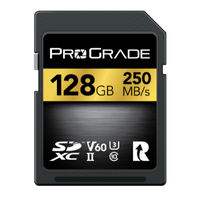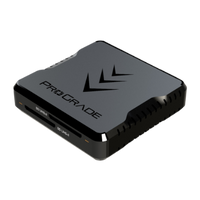Wes Brewer
Capturing high definition video and more – at 120mph!
For most people, a flash memory card is a small piece of plastic that is placed into a digital camera in order to capture still images and video. For the World Rally Championship (WRC), memory cards provide a reliable way to capture high-definition video and diagnostic data from within the rally cars while traveling over some of the roughest terrain in the world – frequently moving at speeds of up to 120mph.
For nearly five years, the World Rally Championship has been using flash memory cards in a variety of ways to capture all the action, both on and off the course. WRC relies on four memory cards per car –placed within three high definition 4K video cameras and one used to store critical diagnostic data gathered from the vehicle’s on-board systems. In addition to cards in cars, WRC places memory cards in track-side GoPro cameras and within DJI drones and high-speed chase helicopters.
In the car:
In each rally car, the World Rally Championship has chosen to record high-definition motion capture data to 128GB CFast 2.0 cards. CFast cards are based on the SATA (Serial ATA) interface standard and offer data transfer speeds exceeding 500MB/second. During recording with the car in motion, data requirements can reach up to 130Mbytes/second, with a requirement that there be no interruption by the card during recording – otherwise, critical video segments could be lost. ProGrade Digital CFast cards provide a video performance guarantee known as VPG-130. VPG-130 certified cards provide a minimum guarantee of uninterrupted recording capability of at least 130MB/second across the entire capacity of the card. This guarantee assures that no video will be lost — from the very first gigabyte recorded, to the last

ProGrade Digital Cards stand up to the test of the WRC Rallies © McKlein Photography
While there are a variety of storage options for WRC to choose from for their in-car video recording systems, the choice of ProGrade Digital CFast cards was a natural due to the disconnected nature of the cars while on the rally course. The long distances that WRC cars must travel (start to end points) eliminate the possibility for reliable wireless transmission of video, and consequently requires that onboard storage be utilized. Plus, the removable nature of memory cards allows WRC to quickly and easily transport just-captured onboard video on each card from a rally car at the last checkpoint to the editing studio – something that would be problematic for other storage options such as hard disk drives or SSDs. In addition to data transfer performance and removability, CFast cards and related interconnect system in the car’s recorder provide reliable operation in environments that see G-force ranging from 1 to 5 Gs. ProGrade Digital cards are rated to perform in operating temperatures as low as -25 degrees C (-13 deg F) and up to 85 degrees C (185 deg. F) easily meeting the range required for optimal/maximum performance of WRC rally environments. CFast cards from ProGrade Digital range in capacity from 128GB to 512GB – providing plenty of storage for a wide range of applications.
In the studio:
After the action has been captured, the WRC crew must perform an amazing transport operation of moving the memory cards from each rally car to the editing studio. As a car completes a rally stage, it momentarily stops at the finish line for the press and crew to converse. During this time, the WRC team springs into action and removes the memory cards from the rally car – placing all cards into a carrier. Memory cards then travel back to the studio for rapid download into a workstation where editing and end-of-day transmission of the finished product

ProGrade Digital Card inserted in capture system under car seat © McKlein Photography
In summary, WRC has chosen ProGrade Digital removable flash memory cards and readers for essential video and data capture needs–as these products are uniquely able to meet WRC needs for reliability, performance, removability and a workflow advantage. Removable storage, as used in applications such as WRC rally cars, demonstrates the advantages of solid state storage in demanding environments. While WRC pushes the capabilities of removable storage to the edge of ProGrade Digital design limits, average users can rest assured that the reliability demanded by WRC is present in every memory card they purchase from ProGrade Digital – the choice of professionals.





